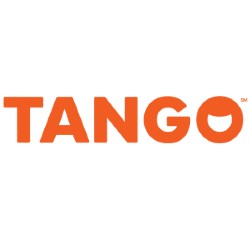Customer referrals are powerful tools, especially for your sales and marketing efforts. Most people rely on the opinions of family and friends to make their purchasing decisions, so referrals from satisfied customers are a great source of new business.
People cite reviews and word-of-mouth recommendations as some of the most trustworthy sources along the buyer's journey, a 2021 study from Nielsen found.
From luxury mattress companies, such as Purple, to SMS marketing companies, such as Emotive, many companies now see the importance of customer referrals in the sales pipeline. Both companies implemented referral programs rooted in rewarding customers with gift cards when they refer a friend or colleague. Emotive even provides a larger reward after a referred lead signs up for its software.
Here's a look at what makes referral programs work—and how they can work for you.
Why Customer Referrals Work
A full 92% of consumers trust recommendations from people they know, according to Nielsen, whereas less than 60% trust messages from company websites, display ads, or traditional media.
Customer referrals work off the inherent trust people place in one another, compared with the lack of trust they may have in companies. They also allow potential customers to research and compare companies more quickly before making a buying decision.
Companies that take advantage of referrals gain verified leads from trusted sources and spend less time generating and nurturing leads.
How to Get More Customer Referrals
Closing a referred lead can be easier than closing a cold lead, so how do you gain more customer referrals? There are several possible approaches.
1. Social Shares
Offering small incentives to gain social shares can help spread the word about your product or service. You can implement social media contests or giveaways with larger prizes or give your audience the incentive to share your post by giving them a small gift card.
Social posts from current customers to their network can also help grow your social following and allow potential customers to get to know your company.
2. Reviews
Although online reviews may not be from a lead's close friends or family, they do count as a referral. Considering that more than 93% of people look at reviews before purchasing, according to Qualtrics, reviews are a powerful source of information.
Knowing how to ask for reviews—and how to give incentive for them properly—is key to generating warm leads from reputable review sites.
3. Testimonials
"A good testimonial has the power to convince even your 'tough sell' visitors that your product or service really made a difference in your customer's life—and can help them, too," declares Entrepreneur.
Much like generating reviews, sourcing testimonials is a matter of asking the right customers and rewarding them for their time. Such rewards can pay for themselves when potential customers visit your website and see how your product or service can help them.
4. Direct Customer Referrals
Implementing a direct customer referral program as Purple and Emotive have done can significantly increase the likelihood of receiving a qualified referral lead.
People are five times more likely to refer a lead if there are incentives for referrals, our referral program found. Incentives don't have to be expensive, either; they can range from $1–$5 for app downloads to $50–$100 for a B2B software purchase.
* * *
Increasing customer referrals is easier with powerful incentives. Reward Link allows you to instantly send recipients a choice of popular gift cards instantly by email. Request a demo to learn how Reward Link can help you gain more qualified leads.




